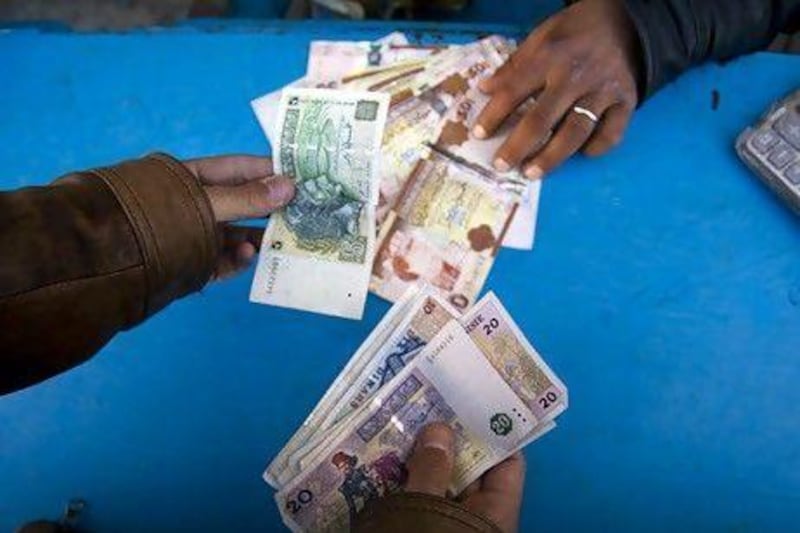A raft of economic reforms and an anti-corruption campaign is spurring a wave of investment in Tunisia for the first time since the regime of Zine El Abidine Ben Ali was overthrown a year ago.
"[Our local partners] are telling us that the middlemen that were taking commissions on behalf of the Ben Ali family and institutionalising corruption are no longer there," said Mohamed Khamis Al Hosani, the chairman at Al Tarabut Group, a UAE company involved in an array of industries across the Middle East and North Africa that include small investments in Tunisia.
"In the old regime, you had to turn away eye-catching projects. The transfer of assets and currency was also a problem, with heavy documentation and central bank approval required and paying off people across the government ranks to get things done."
Among the reforms, the finance ministry is in discussions to make it easier to move the Tunisian currency across borders.
Tunisian companies that export 80 per cent of their sales in foreign currency are exempt from taxes. The government has made a big effort to tackle corruption and businesses are making efforts to ease the country's unemployment rate.
A shortage of jobs was a key reason for the popular uprisings that spread across parts of the Arab world last year.
Tunisian policymakers have had the confidence to implement the country's legal framework, based on French civil law, without political interference.
"The environment is much more friendly for business," said Ibrahim bin Desmal, the chief human capital officer at the UAE's Al Naboodah Holding, which is considering setting up in Tunisia as a hub to get into neighbouring Libya to bid on oil and gas services projects. Libya is the holder of Africa's biggest oil reserves.
Tunisia's economy is expected to grow 4 per cent this year and 5.2 per cent next year, more than any other Arab country that experienced uprisings, including Egypt, Syria and Bahrain, according to IMF forecasts.
The UAE, by contrast, is expected to show a growth of 3.8 per cent this year.
Tunisia's stock market outperformed other Arab bourses, up 10.5 per cent in the second half of last year, compared with a 7 per cent decline of the S&P Pan Arab Index over the same period.
Lucrative investment opportunities in sectors as diverse as communications, tourism and renewable energy, which used to be off-limits, were attracting attention yesterday at a conference in Abu Dhabi organised by Tunisian businesses.
Investors such as Omair Al Dhaheri, the chairman at Midein Holding, a UAE company that owns and runs hotel business in the Gulf region, wants to get into Tunisia's hospitality business. "We are interested in building a hotel in Tunisia," Mr Al Dhaheri said. "Once the political situation stabilises, you will see more visitors in the country, even more so than during the previous regime."
Tourism revenues slumped 50 per cent last year, as visitors shied away from the North African country amid popular unrest and instead opted to go to the UAE, Turkey and other Mediterranean destinations. Mr Al Dhaheri is banking on a turnaround in the medium term, however.
Tunisian businessmen, freed from political shackles, said they felt more confidence when seeking partnerships with Gulf investors today.
"This is a new Tunisia that we are trying to market. There was a lack of transparency and clarity in the past when dealing with Gulf investors, which was something we could not help," said Mohamed Mlik, the owner of a group of Tunisian companies involved in automotive industry, solar energy and weaving, valued at US$20 million (Dh73.4m).
"You couldn't guarantee to your partner, that as your business thrives, that the regime … family would force themselves on you as another shareholder in the company. And if the owners didn't collaborate, they would be disowned of their businesses or penalised through abuse of tax controls."
twitter: Follow our breaking business news and retweet to your followers. Follow us





